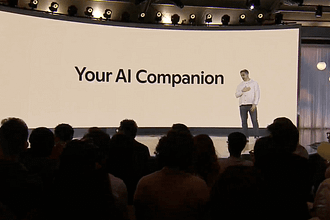The era of Facebook, Instagram and Threads using fact-checking to verify information on its platforms is over, as of Monday, April 7, according to Meta’s chief global affairs officer Joel Kaplan. He said in a post on X, “By Monday afternoon, our fact-checking program in the US will be officially over. That means no new fact checks and no fact checkers.”
In early January, Meta CEO Mark Zuckerberg said the company was going to wind down its decade-old program using third-party fact-checkers approved by the International Fact-Checking Network, to verify Facebook and Instagram posts, including videos and images.
Now Meta will be using Community Notes generated by the users themselves. “In place of fact checks, the first Community Notes will start appearing gradually across Facebook, Threads & Instagram, with no penalties attached,” Kaplan said in his post.
Meta’s announcement in early January came weeks before the inauguration of US President Donald Trump for a second term. It was part of a large shift among some of the top tech companies including Apple, Amazon and Google to more closely align with the new administration’s agenda. X owner Elon Musk replied to Kaplan’s post on X with “Cool.”
Effects of the change not yet known
X launched Community Notes in 2021, but did not do away with fact checking in addition to them until after Elon Musk’s 2022 purchase of the platform, formerly Twitter.
It’s unclear if they are any more or less effective than professional fact checking, but whatever method is used, they have both been up against an ever-increasing tidal wave of misinformation. Anjana Susarla, who specializes in topics including AI and social media at Michigan State University’s Broad College of Business, said the two biggest challenges for countering false information on these platforms are the volume of posts to be dealt with and whether users engage with the solutions.
“It’s not that Community Notes are not helpful,” she said, “it’s that the scale and the volume that exists on these very large platforms, the volume of debunking… can you debunk things with the same speed (as fact checking)? Second, will engagement be lower if you have these Community Notes? How effective are they?”
Susarla says that if readers don’t trust Community Notes or fact checking, they’re unlikely to engage with that information and there’s not enough data yet on which is more useful or preferable to users.
“Evidence is mixed,” she said, “we don’t have too many large-scale studies on that.”
One alternate to either of these approaches, she said, is something like what Wikipedia does: relying on crowdsourcing for information, but also including community editors in the mix to help verify information. It’s unclear, she said, whether that kind of approach would work on such huge platforms, and whether it would help build trust among users.
Susarla noted that the timing of Meta shutting down fact checking was on the same day that financial markets were melting down over global tariff concerns. She said, “If you are going to Facebook to find out about the stock market, it’s not necessarily a great time.”





